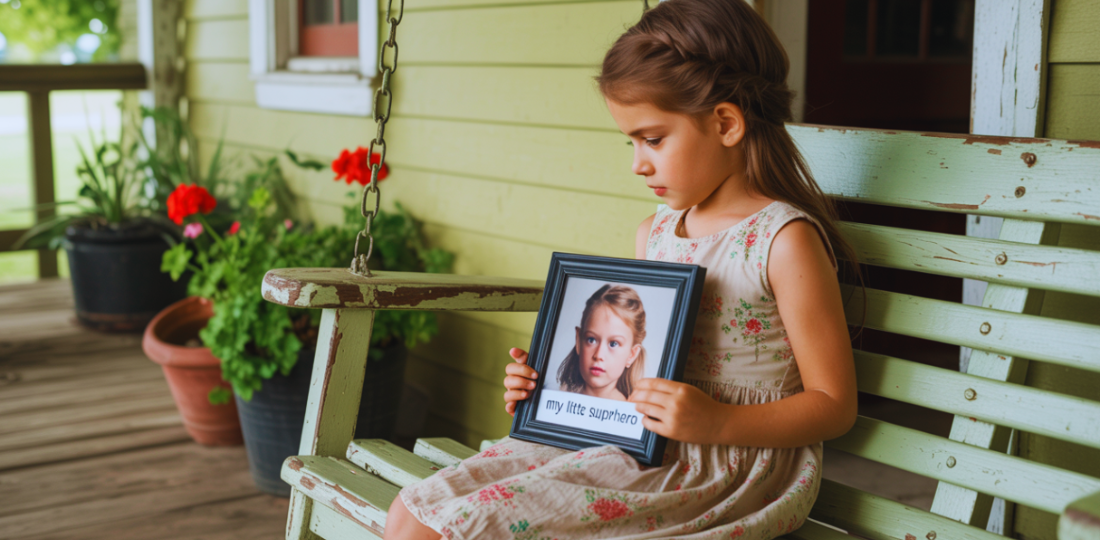The conventional narrative surrounding single parenting often begins with problems and challenges, yet this perspective fundamentally misses the profound transformation that occurs when society confronts its own limitations. In Pakistan, where traditional family structures dominate social interactions, the reality of mothers and fathers raising children alone exposes not just individual struggles, but systemic gaps in community support and understanding.
Widowed parents navigate grief while divorced individuals face cultural stigmas, but perhaps most telling is how unmarried parents reveal the hypocrisy of societal judgment – all these experiences converge to demonstrate that single parenthood isn’t an anomaly requiring fixing, but rather a mirror reflecting our collective failure to create inclusive support systems.

Financial instability and emotional weight certainly define much of the daily reality for these families, where one income must stretch to meet housing, education, healthcare, and basic living needs while maintaining stability for kids who face their own complex emotions around absent parents. However, the most significant impact lies not in immediate hardships but in how children develop independence, maturity, and resilience beyond their years – traits that become lifelong assets when proper guidance exists.
Working parents who juggle multiple roles often discover that quality time matters more than quantity, while their offspring learn responsibility, empathy, and problem-solving skills that peers from two-parent households may never acquire – suggesting that single parenting, despite its burdens, creates opportunities for unique growth and empowerment when community, legal provisions, and practical assistance fill existing gaps.
Understanding Single Parenting: Core Issues of Single Parenting
What Is Single Parenting?
The definition of single parenting extends far beyond what most people look at on the surface – it’s not simply about moms and dads who happen to raise children alone. When circumstances reveal that one parent must take full responsibility for a child’s upbringing, the heavy weight of two distinct roles becomes carried by a single individual.
This unique journey doesn’t always happen due to separation or divorce; many reasons can bring someone into this position, from partners struggling with alcohol, drug addiction, or mental health issues, to situations where the other parent simply does not maintain a consistent presence in the home. The reality involves giving everyday care, setting boundaries, providing food, money, and emotional assistance to children under 18 without the luxury of sharing these troubles with another caregiver.
Types of Single Parenting
Everyone assumes single parents are the same, but four major types of individuals navigate this path based on how they came into their role. Divorced or separated parents often deal with co-parenting strain and limited cooperation, where one parent becomes the primary caregiver while trying to provide stability despite ongoing issues.
Widowed parents, having lost their spouses, face intense isolation and the challenge of being solely responsible for doing everything their young children need. The third type includes those who never married but were abandoned during or after pregnancy – a circumstance particularly common in urban areas of Pakistan, where this situation often creates a significant barrier to work opportunities.
Finally, solo-parents by choice represent a more prevalent trend among educated communities and professionals, using means like adoption or surrogacy to build their families. While rare in traditional settings, these parents approach single parenting with confidence, though they still face unique sensitivities regarding social acceptance in various areas where such choices differ from cultural norms.
Challenges Faced by Single Parents
The overwhelming reality of balancing obligations creates a challenging landscape where pressures bear down from every area of life. Sole responsibility for decisions regarding upbringing, discipline, and household management becomes daunting, especially when complex input from a second partner is absent.
- Making adequate provisions while covering expenses related to school fees, clothes, and medical requirements often leads to significant burnout. The psychological toll involves multitasking between playing the role of both mom and dad, which makes them stressed and doubled in their efforts to compensate.
- Extended members may provide rejection rather than support in some cases, leading to associated loneliness and anxiety. Full-time work-life struggles emerge when trying to get enough attention for monitoring educational performance, tests, and marks, while spending most tasks on the side they didn’t expect to handle alone.
- Hyper-responsibility creates guilt and sadness when they can’t fulfil every need, feeling like they must be the best in all aspects, but knowing they’re adapting to new realities after losing their biggest support system. The difficulty of going through telling children about why life has changed while clarifying the future becomes the most challenging obstacle to overcome, requiring them to be ready for low moments while facing each day with survival instincts.
Impact on Single Parents’ Health
Constant pressure to provide while handling physical and mental strain creates a higher risk of experiencing health issues such as depression, anxiety, and fatigue.
- The cognitive load of making all decisions about meals, schooling, and emotional well-being weakens focus, patience, and clarity over time. Sleep patterns become disrupted, leading to a weakened immune system that makes it difficult to maintain proper well-being and energy levels.
- Trust issues emerge, making it hard to consider rebuilding future relationships after facing abandonment or abuse, which creates long-term detachment and persistent loneliness. Self-blame becomes especially problematic for those who often wonder if they’re enough, constantly questioning their choices and blaming themselves for everything that goes wrong.
- This adds to existing guilt and creates a cycle where decision fatigue overwhelms their capacity to cope. Unlike two-parent households, where responsibilities are shared, single parents must carry the burden alone, which causes harm to both mental and physical health systems.
- The trouble with building new support networks again exacerbates these problems, as they struggle with feeling vulnerable while trying to maintain strength for their children. Stress compounds when they realise the impact their struggling has on their ability to be present and emotionally available, creating additional layers of worry about their parenting effectiveness.
Legal Aspects
Navigating custody matters requires understanding that decisions aren’t primarily about rigid laws but about paramount consideration of child welfare. The Guardians and Wards Act 1890, alongside the Muslim Laws Ordinance 1961, create frameworks where Islamic rulings often grant custody to the mother, yet both parents are encouraged to remain involved through cooperation, considered a moral obligation.
What courts rarely discuss is how these legal structures, while governed by established precedents, actually reflect deeper spiritual principles about protecting the vulnerable members of society. The intersection of district courts and women’s rights reveals that custody harassment cases often expose systemic challenges where evidence of best interest gets lost in procedural complexities.
Pakistani law considers not just immediate welfare but long-term development opportunities, which is why educational support through reduced fees from foundations like TCF becomes legally relevant in custody decisions. This legal landscape emphasises that justice isn’t merely about court verdicts but about ensuring children have access to comprehensive support systems that help them grow stronger emotionally and academically despite obstacles.
Effects on Children
Despite overwhelming odds, children raised in single-parent households often navigate a complex psychological landscape differently than their peers. When sudden abandonment, divorce, or death disrupts the traditional family unit, children may initially feel confused, rejected, and incomplete. However, early wounds don’t necessarily deepen – instead, they often foster resilience and emotional awareness that help them become stronger individuals.
The absence of one parent creates an environment where children learn to appreciate their remaining caregiver’s sacrifices, developing a mature understanding beyond their years. Academic performance might initially suffer as children struggle with anger, sadness, and withdrawal, but schools that collaborate with single parents often help students regain focus and succeed academically and professionally.

Key developmental impacts include:
- Emotional responses – Children show frustration, fear, and low self-esteem when left unaddressed, leading to behavioural changes and social isolation from peers
- Academic challenges – Educational performance suffers due to a lack of attention and monitoring, with likely drops in marks and test scores requiring school intervention
- Financial awareness – Missing extracurricular activities due to money constraints teaches children about essentials versus luxury items, making them financially conscious early
- Responsibility acceleration – Spending busy hours assisting with household chores while the parent works makes them emotionally mature quickly
- Trust issues – Difficulty trusting others and dependency problems affect all aspects of their social development and future relationships
The profound effects extend to behavioural changes and social development. Children experiencing single parenthood tend to show difficulty trusting others and may feel isolated from peers who come from complete families. Missing extracurricular activities due to financial limitations or lack of time can limit overall growth, yet these same children often develop remarkable skills in household management and responsibility.
Spending busy hours assisting with chores while their parent works makes them emotionally mature quickly, creating a unique bond with their mother or father. Reflecting on their circumstances, many children learn to forgive and teach positive attributes such as empathy toward others who have gone through similar struggles. The love they experience, though coming from just one source, often proves more meaningful as they witness firsthand their parents’ dedication to providing essentials and finishing schoolwork support even when resources are scarce.
Single Fathers’ Challenges
While society directs much attention toward maternal struggles, significant obstacles face fathers who navigate this landscape alone, particularly when employers hesitate to hire or promote men worried about balancing duties that might affect their professional advancement.
The psychological pressure of handling school fees while facing whispers about their choice to prioritise home tasks creates a heavier burden than most realise, especially when landlords perceive them as less stable tenants due to pronounced biases. Discrimination in employment opportunities often limits their career growth, forcing them to cope with challenging circumstances where survival becomes about managing monthly expenses into basics like clothes and medical needs after ensuring essentials are covered.
Key challenges include:
- Workplace discrimination that affects career progression
- Social stigma around men as primary caregivers
- Limited access to father-specific support groups
- Financial strain from single-income households
The complex experience of single-parenthood for fathers involves overcoming judgment from social norms that emphasise women as primary caregivers, creating struggles with depression and health issues that remain largely unaddressed.
Given the lack of comprehensive support, these men encounter difficulties securing help while carrying the world on their shoulders, feeling isolated when peers don’t understand their sudden shift from partner to sole caregiver. Their resilient efforts in creating positive environments despite the profound effects of loss demonstrate how they build assets for their children’s future, teaching forgiving attributes even when going through their own emotional healing process.
Children’s Resilience
Despite facing odds that could lead to behavioural changes and academic struggles, children become remarkably aware of their parents’ sacrifices and develop understanding beyond their years, transforming these challenging experiences into skills that become assets for lifelong success. Not just academically, they mature quickly through learning to appreciate efforts made when money is only for essentials, missing luxury activities, but participating in home responsibilities that teach management and create strong bonds with mothers or fathers who spend most of their day working to keep the house functioning.
Resilience indicators:
- Enhanced empathy toward others facing difficulties
- Advanced problem-solving capabilities for their age
- Stronger sense of family responsibility and commitment
- Improved adaptability to changing circumstances
The effect of upbringing in single-parent households creates individuals who show profound awareness toward others’ struggles, building traits that help them succeed professionally and personally. Whether raised by working mothers who balance chores with career demands or fathers learning to tend household tasks, these children develop skills in discipline and focus that affect their performance in school environments positively.
All limitations they face – from physical programs they can’t afford to extracurricular activities beyond reach – foster creativity and resourcefulness, teaching them to collaborate with peers and appreciate opportunities when they present themselves, ultimately helping them regain confidence and build lifelong assets.
Solutions & Coping Strategies
Coping with single parenthood requires strategic routine management and well-organised daily activities. Set specific times for studying, playing, sleeping, and eating meals to positively affect academic performance and emotional stability. Create a monthly budget that fits your income and divide expenses into categories: basic medical needs, school fees, clothes, and only essential requirements.
Avoid luxury purchases until after basics are covered, and get help from others when possible – whether that’s hiring a nanny while you work or accepting assistance from extended family members. Plan work-life balance by allocating particular hours for caring tasks and keep yourself from feeling guilty about neglecting certain areas of life. Eliminate self-blame and focus on positive sources of energy that boost self-confidence and improve your personality physically and physiologically.

Practical daily management strategies:
- Routine establishment – Organise specific times for all activities, such as studying, playing, and sleeping, to create stability and predictability for children
- Financial planning – Divide monthly income into categories covering medical, school fees, clothes, and essential needs while avoiding luxury spending
- Support systems – Accept help from family members, hire assistance when possible, and utilise community resources at the grassroots level
- Work-life balance – Allocate specific hours for caring tasks, household management, and personal well-being activities
- Guilt management – Eliminate feelings of guilt about not being able to provide everything, and focus on positive achievements
Building trust again after facing abandonment or abuse proves challenging, but participating in workshops and educational programs can equip you with effective child-rearing strategies. Talk honestly with your kid about the missing parent – speak positively about the situation and try to make them feel safe about their future. Overcome loneliness by building support systems through NGO programs or community groups that offer practical insights and healing opportunities.
Although the country lacks comprehensive government policies, several Pakistani organisations at the grassroots level provide skill-building courses in sewing, crafts, IT, and beauty training. These initiatives restore dignity to struggling parents while offering microloans for home-based projects that allow earning while caring for children.
Counselling centres and online therapy platforms have become more accessible in recent years, providing a safe space to heal and grow stronger emotionally. The key is requiring patience with yourself as you overcome these obstacles – changes will reflect in your child’s well-being as you benefit from overcoming each challenge with courage and determination.
Long-term emotional and financial strategies:
- Communication approach – Talk honestly with children about the missing parent while speaking positively about the current situation to make them feel safe
- Professional development – Participate in skill-building courses like sewing, crafts, IT, and beauty training offered by Pakistani organisations
- Mental health support – Utilise counselling centres and online therapy platforms that have become accessible in recent years
- Income generation – Explore microloans for home-based projects that allow earning while caring for children
- Community engagement – Build relationships through NGO programs that provide practical insights and healing opportunities
- Personal growth – Requires patience with yourself as changes reflect in your child’s well-being through overcoming obstacles with courage
Support System
The support systems landscape reveals unexpected lifelines where grassroots organisations offer skill-building courses in sewing, crafts, IT, and beauty training that transform struggling mothers into self-reliant entrepreneurs. Recent years have seen counselling centres and online therapy platforms become more accessible, creating safe spaces where single parents can share, heal, and develop emotionally stronger connections with their children.
What many don’t realise is that these initiatives restore dignity by focusing on home-based projects and microloans that allow caring while earning – addressing the core challenge of balancing survival needs with parental presence. Although our country lacks comprehensive government policies, several NGOs and nonprofits groups work at the grassroots level to fill critical gaps in basic support options.
The reality is that no direct scheme exists like established welfare programs, yet indirectly free aid becomes available through various channels – from private schools and universities offering reduced fees to district courts providing legal assistance for custody matters. This mentally exhausting journey of seeking help often leads to discovering tailored skill development programs that not only address immediate challenges but also help students and parents build lifelong assets for navigating tough circumstances.
Islamic Perspective
Islam holds the family unit in the highest regard yet recognises that hardships and tests may bring situations where single parenting becomes a reality, and though not the ideal family structure, Islamic teachings ensure such parents are never shamed or looked down upon. The focus on compassion and justice becomes evident in how Prophet Muhammad (PBUH), himself an orphan, was deeply empathetic toward widows and said that “one who looks after a widow and poor person is like a Mujahid (fighter) in the cause of Allah” (Sahih al-Bukhari 5353).
This Hadith emphasises the great reward for those caring for vulnerable members of society, especially during their most challenging moments. The divine guidance found in these stories shows that being born into seeming disadvantage can be a sign of special purpose – several Prophets were raised in early difficulty, including Moses (AS) and Jesus, born to Maryam, both chosen and honoured for their resilience. Islamic teachings emphasise that neighbours, relatives, and the broader community must assist emotionally, financially, and spiritually, as commanded to “cooperate in righteousness and piety” (Surah Al-Ma’idah 5:2).
This verse reminds us that caring for struggling families isn’t just noble charity but an essential part of faith, where single parents become conduits for community cooperation and moral development rather than burdens to bear.
Empowerment
Empowerment emerges when single parents explore different ways to turn challenges into growth opportunities, particularly through well-organised routines that create structure where children feel safe despite sudden changes in family dynamics. The moment parents set boundaries around work-life balance and allocate particular times for activities like studying, playing, sleeping, and eating meals together, they eliminate feelings of guilt and boost self-confidence in both themselves and their children.
Moreover, when they honestly speak about the absence of the other parent without causing confusion or fear, they foster open communication that helps kids navigate complex emotions like anger, frustration, sadness, and withdrawal.
Empowerment strategies:
- Establishing predictable daily routines for stability
- Building financial literacy and budgeting skills
- Developing emotional intelligence through open dialogue
- Creating support networks within the community

The psychological transformation happens when parents realise their ability to improve physically and physiologically through positive sources of support, whether from NGO programs that reduce financial burden or counselling that addresses unaddressed wounds from divorce, death, or abandonment.
Personality changes reflect growth when they learn to divide their budget wisely, avoid unnecessary expenses, and plan for emergencies while still investing in their children’s education and development. This empowerment creates a ripple effect where dependency transforms into independence, making both parent and child stronger emotionally and more capable of trusting others when appropriate relationships present themselves.
Success Stories
Success stories emerge from statistics that, according to 2023 census data, around 4% of Pakistan’s households are led by single parents, yet a comprehensive collection of their achievements remains scarce due to a lack of systematic tracking.
However, real-world evidence shows that individuals who went through a single-parent upbringing often develop exceptional problem-solving abilities, becoming successful professionals who contribute significantly to their communities while maintaining strong family values. These adults demonstrate love and compassion toward vulnerable populations, often choosing careers in social work, education, or healthcare where they can assist others facing similar circumstances.
Notable achievements:
- Higher rates of community involvement and volunteerism
- Leadership roles in social advocacy organisations
- Entrepreneurial ventures addressing family-related challenges
- Educational achievements despite financial constraints
The exact measurement of success goes beyond traditional metrics – it’s reflected in how these individuals handle pressure without piling stress on their own families, how they teach their children to be forgiving and understanding, and how they create support networks that benefit entire communities.
Many finish their education despite being busy with part-time work to support their families, later becoming advocates for policy changes that address systemic issues affecting single-parent households. Their ability to overcome difficulties while maintaining positive attitudes creates a lasting impact, demonstrating that resilience built during challenging times becomes the foundation for extraordinary achievements in adulthood.
Conclusion
The world of single parenting reveals that successful families aren’t those without struggle, but those who share experiences openly while maintaining awareness of their biggest strengths. What makes the journey forward meaningful isn’t avoiding health challenges or pretending to cope perfectly, but learning to lean into support systems that recognise every parent’s right to thrive despite circumstances. Single parenting creates bonds that appreciate love in unexpected ways, helping families navigate complex situations where traditional balance doesn’t fit – yet these experiences often make parents and children stronger in areas that matter most for long-term well-being.
FAQs
Q1: How do single parents handle the financial burden while maintaining emotional stability?
Finance issues affect overall performance in life, yet many succeed through creative solutions that require learning to talk positively about limitations. The tip most experts miss is that buying time with help like a nanny until you can cope with daily tasks prevents neglecting yourself – such strategies should be viewed as necessary investments rather than luxury expenses.
Q2: What effects does single parenting have on children’s academic achievement?
Children navigate this landscape differently than expected, with school performance often reflecting environmental stability rather than family structure. However, kids who explore their feelings about being different from other families don’t automatically suffer – they develop attributes like independence and problem-solving that help them succeed academically when given appropriate support.
Q3: How can single parents deal with feelings of isolation and social judgment?
Isolation from other caregivers creates difficulty, but workers in welfare and community programs understand that the odds against strong social connections burden parents more than children initially. Your routine fits better when you leave space for good relationships and focus on what’s possible rather than complete social integration in every situation.
Q4: What are the most common emotional challenges children face in single-parent homes?
Pain of feeling rejected or incomplete can deepen if left unaddressed, with unexplained changes in family dynamics affecting self-esteem and emotional balance. Such circumstances make children feel sad, anxious, depressed, or angry – these reactions are a reflection of difficult transitions rather than permanent emotional damage.
Q5: How do single parents maintain work-life balance while ensuring quality time with children?
Being busy with work and finishing household tasks while assisting with schoolwork requires strategic planning that fits realistic expectations. The key is learning that quality time doesn’t require perfect balance – try creating small moments of connection to appreciate each other’s efforts between daily responsibilities.
Q6: What support systems work best for single-parent families?
Due to complex needs, effective support involves helping parents at multiple levels – from practical assistance to emotional guidance that helps them ease transitions for their families. Missing traditional family structures doesn’t mean missing opportunities for growth when community resources provide comprehensive help.
Q7: How does single parenting affect long-term parent-child relationships?
Parenthood in single-parent homes often creates stronger bonds between parent and child than traditional families because shared struggles build mutual appreciation and understanding. These relationships develop unique attributes of trust and communication that last throughout life when both parties learn to navigate challenges together.
Q8: What are the biggest misconceptions about children from single-parent families?
The biggest misconception is that children automatically struggle more than those in two-parent homes – research shows that kids who feel loved and supported develop resilience and emotional intelligence that helps them succeed in various areas of life. Overall, family health depends more on the quality of relationships and stability than on family structure alone.


